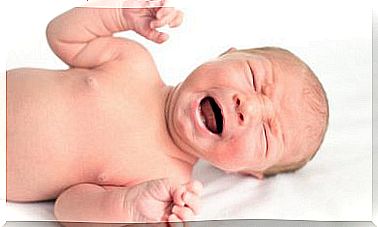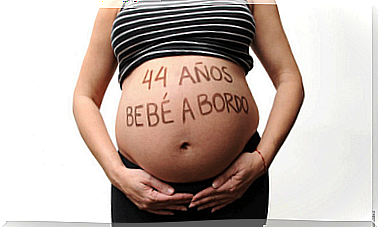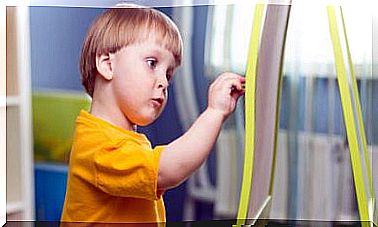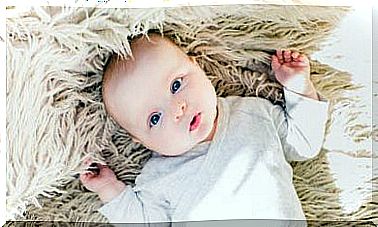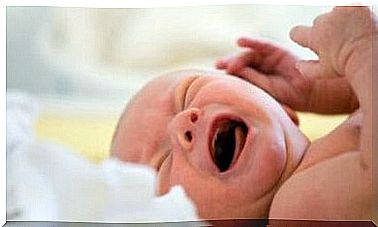5 Advice From Pediatricians For First-time Mothers

For first-time mothers, everything is new and, as they are nervous because they want their little one to be healthy, they are distressed by almost any situation. This article offers 5 advice from pediatricians to first-time mothers.
Pediatricians’ first advice to a first-time mother is that no matter what the situation, the important thing is to stay calm. Remember, being a mother is a wonderful experience. Enjoy even if your first experiences might turn out to be confusing or even difficult.
Don’t forget that staying positive and optimistic will help you remember that the first few days will pass. Furthermore, living motherhood is one of the best experiences a woman can experience.
This advice also includes working on aspects of your personality, such as serenity and self-assurance. Both aspects, which can also be called qualities, will help you put common sense into practice. In turn, common sense will help you clarify what you feel at each moment. This common sense is related to a text that went viral a few years ago. In it a pediatrician says:
The best:
- The best is not the chest
- The baby bottle isn’t the best either
- It’s not best to take it on your lap
- The best thing is not to miss it either
- It’s best not to lay the baby down like that
- The best thing is not to put this other
- The best is not to cover it like that
- The best thing is not to cover it with this other one either
- It’s not best to wrap the baby up with it
- The best thing is not to wrap it up either
- It’s not best to puree
- The best is not to give pieces either
- The best is not what your mother says
- The best is not what your friend says either
- The best is not to leave him with the nanny
- The best thing is not to leave him at the daycare or with his grandparents either.
- The best thing is not to follow this kind of creation.
- The best thing is not to follow this other style either.
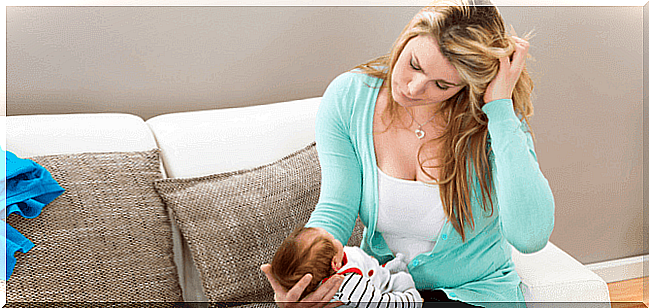
Do you know what is really best?
- The best is what really makes you feel good
- The best is what your instinct suggests is best
- The best is what helps you feel good too
- The best is what allows you to be happy with your family
- Because if you feel good, they also get the best. because the best is you
- Because if you feel safe, they feel safe too
- Because if you believe you’re doing the right thing, your peace of mind and happiness reach other people as well.
- “We stopped trying to tell moms and dads what’s best because, in fact, what’s best for your kids is you.”
food advice
One of the biggest concerns of mothers is that their child is well fed. This is a logical concern. To feed a newborn baby well, most experts in the world advise breast milk.
But what happens when you feel the child is not eating well? According to the Spanish Association of Pediatrics (AEP), most difficulties in relation to breastfeeding occur due to problems with the technique. It may be related to the mother’s incorrect position or inadequate adherence to the breast, or a combination of both circumstances.
According to a document from the AEP, for a good adherence, the baby’s entire body must be positioned directly in front of the mother. When opening the mouth, the baby should introduce much of the areola, especially the lower jaw, so that the tongue does not hurt the nipple.
The signs that indicate a good adhesion, according to the PEA, are the baby’s chin touching the mother’s chest, the mouth being wide open, the lower lip being out and the cheeks rounded or leveled when the baby sucks. In addition, it must be possible to see the areola more from above than below. These advices, in addition to being reported by the association, were reproduced by several specialized magazines.
For this pediatric organization, even if there is no single suitable position for breastfeeding, the mother must be comfortable and the baby positioned in front and very close to the mother’s body. So, follow these steps and try to find a comfortable and satisfying position for both of you. You will certainly be able to feed your baby the best food in the world: breast milk. This is the second advice of pediatricians: feed the baby with breast milk.
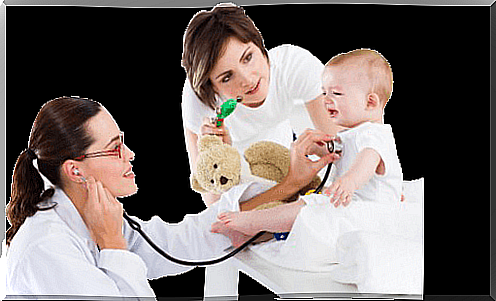
Punctual advice from a pediatrician
The Venezuelan magazine “Ciência Médica Em Dia” recently published an article in which pediatrician Marisol Godoy answers some specific questions and offers her advice:
-How should I take care of the umbilical cord?
-The umbilical cord must be cleaned with absolute alcohol every time the diaper is changed. Thus, the cord will become mummified faster and fall out, preventing a predisposition to infections. If the cord turns a strange color or smells bad, you should take the baby to a doctor’s appointment.
-The baby has a lot of hiccups. Should I be concerned?
-No. Hiccup is very common in babies. We must remember that their digestive system has not yet matured. Your baby will usually have hiccups after expelling gas until they are three or four months old. After that age, hiccups are no longer usual. False beliefs of scaring or putting a wet piece of string in front of the baby will not help.
-Why does he cry so much? How do I reassure you?
-Crying for the baby is the only way to express what you feel. The most common causes are hunger, too much cold or heat, gas or because they have a dirty diaper. Massaging the body, cuddling or taking the baby to a more airy environment can be good solutions. If it is not possible to identify the cause of the crying, it is necessary to go to a pediatrician. The specialist will provide you with the tools you need to discover the cause of crying and the best advice.
Here’s one more piece of advice:
-Is it normal for him to sneeze a lot?
-It is common to observe a newborn baby sneezing constantly. This usually happens because his airways are very small and because the environment he is in may be contaminated with allergic agents such as dust, mold, perfumes, cold or smoke, stimulating the nasal passages, producing mucus and, consequently, a typical reflex act like the sneeze.

